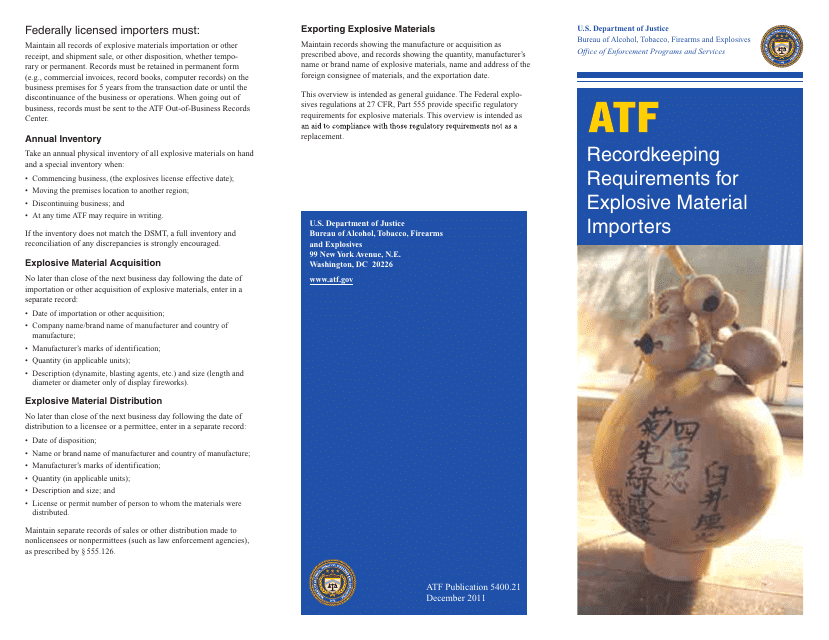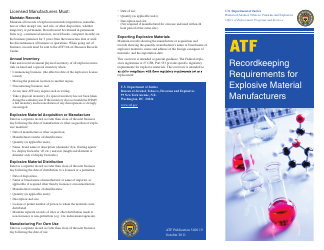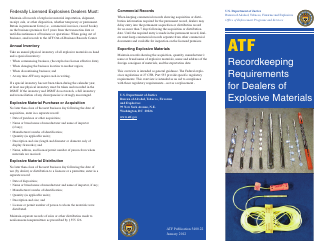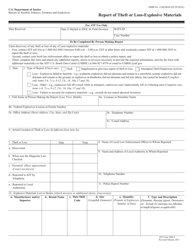Recordkeeping Requirements for Explosive Material Importers - Example
The Recordkeeping Requirements for Explosive Material Importers provide guidelines on how organizations involved in importing explosive materials should maintain their records. This policy was implemented to ensure safety, traceability, and accountability in the trade of potentially dangerous goods. For instance, these records can significantly help in tracing the origins of the material in an investigation or audit. The information generally includes details such as the date of purchase, type of explosive material, quantity, supplier information, and destination details. The requirements are intended to prevent illegal activities and ensure that all transactions are compliant with the relevant federal laws and regulations.
FAQ
Q: What are the recordkeeping requirements for explosive material importers in the USA?
A: In the USA, importers of explosive materials must maintain a record of all transactions involving the materials. This includes details about the material, the parties involved, the date of transaction, and the purpose of the material's use. These records must be kept for at least five years according to the Bureau of Alcohol, Tobacco, Firearms, and Explosives (ATF).
Q: What information must be recorded for explosive material importers in Canada?
A: As per the Explosives Act in Canada, importers are required to document the quantity and type of explosives, date of purchase and date of arrival, full details of the seller and buyer, destination of the explosives and the purpose of use. Records must be maintained for two years.
Q: What is the regulation for importers of explosive materials in India?
A: In India, under the Explosives Act of 1884 and Explosive Rules of 2008, importers of explosives are required to keep a record of transactions, including details about the explosive, date of purchase and arrival, identity of supplier and purchaser, and intended use of the explosives. All records must be preserved for a minimum of five years.
Q: How does Australia regulate the import of explosive materials?
A: In Australia, according to the Explosives Act of 1999, importers of explosives must keep track of all transactions involving explosives for seven years. The records must include details about the explosive, the supplier and purchaser's information, dates of purchase and arrival, the destination, and the intended use.
Q: What happens if explosive material importers don't follow recordkeeping requirements in the USA?
A: Failure to comply with recordkeeping requirements by importers of explosive materials in the USA could result in both criminal and civil penalties, these could include fines, imprisonment, or both, according to ATF regulations.







